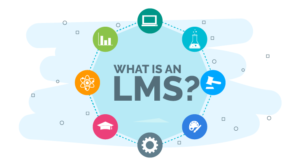How E-Learning Platforms are Clashing with Traditional Learning Systems

We can expect the traditional learning systems to be here for the foreseeable future. There are some values; such as community setup, communication skills, and experiential learning, that one can only learn in a physical setup. In these contexts, e-learning can only play a supplemental role. However, in contexts where the focus in on gaining specialized skills, such as learning a programming language, e-learning can actually prove superior.
E-learning is still in its early stages and in the coming years we will see e-learning platforms dominate and even replace many of the conventional learning systems. Here are some of the main reasons why-
They let you set the pace of your own learning
Every student is different, with a different pace of learning and capacity to absorb different concepts. E-learning platforms are flexible enough for the students to learn at their own pace. No classroom can, practically speaking, have such flexibility. The better e-learning solutions can even arrange the lessons into a proper progression of their difficulty and speed, and offer additional material to those who need it.
They allow for greater time efficiency
E-learning platforms come with one great advantage, they let you study from your own setup. Without the hassle of braving traffic to travel to an institution, the student has more time to practice.
They have great flexibility in timing
Traditional learning systems rely on learning sessions of fixed length, at fixed times of the day. With e-learning, however, learning sessions can happen at any time on the clock and the lessons can be revisited as often as necessary. This type of flexibility is good for every student but it is fantastic for working professionals, who end up having to study during odd hours or over weekends.
Economics
Traditional learning platforms need significant investment in each and every learning session. By contrast, e-learning platforms only require significant investment in the initial stages. Once the educational literature and technology piece have been developed, each individual learning session requires no further investment.
They are more scalable
Via the internet, e-learning systems can help educators share their knowledge with the whole world. High potential educators are smart people, who want to function ahead of the curve. That is why they are attracted to e-learning. This is very good for the future of e-learning systems, as the most fundamental part of any learning system’s quality is the quality of its educators.
They have the capacity to deploy artificial intelligence solutions
Artificial intelligence solutions can utilize machine learning algorithms to analyze user behavior patterns and develop learning solutions tailored to the student’s individual needs. While this concept is still in a nascent stage, in the near future there will be a vast deployment of artificial intelligence into e-learning systems. This will not only make them better tools for students to learn from, but it will also make them better tools for educators to teach with.
The above article has been inspired by the thoughts of Mr. Mayank Srivastava. He is the Founder of Experts’ Global, one of the world’s leading EdTech firms in the field of GMAT prep and MBA admission consulting.






